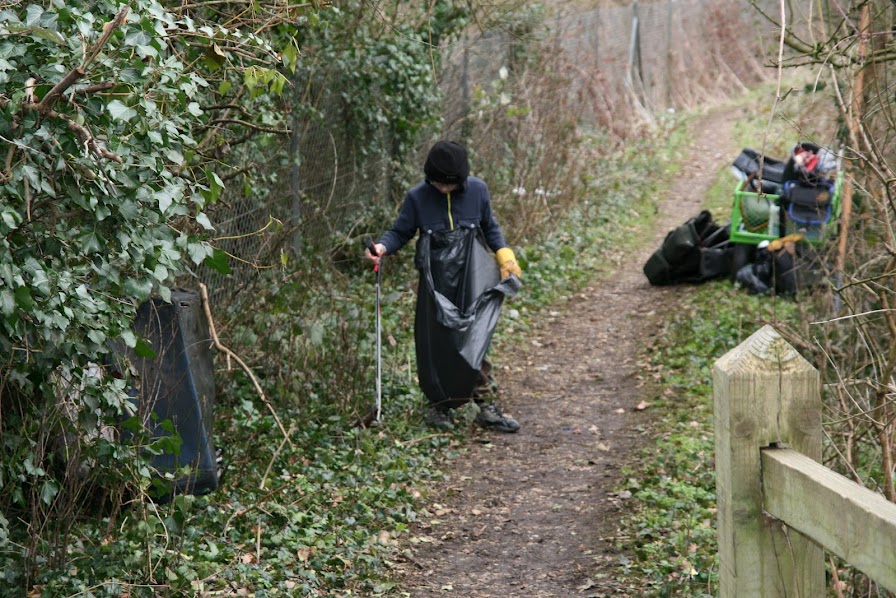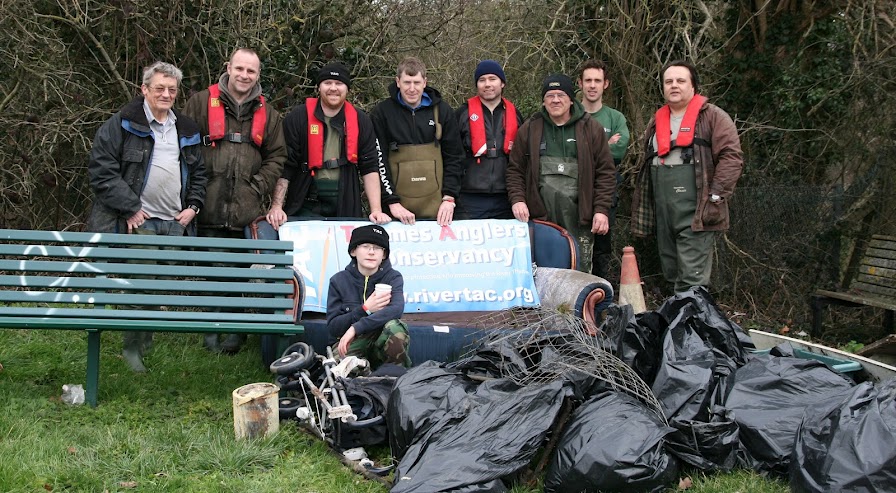Once again the Angling Trust took anglers' concerns to the heart of parliament when the Environmental Audit Select Committee invited Mark Lloyd and Martin Salter, along with the RSPCA, RSPB and the National Gamekeepers. Association, to give evidence in the House of Commons on Wednesday (March 7) to its inquiry into Wildlife Crime.
The Angling Trust duo described to the committee of MPs the problems associated with poaching, illegal commercial fishing and invasive non-native species on rivers, lakes and around the coast. They told MPs that the current system of fines and penalties simply didn't act as a strong enough deterrent and that it was time to get tough on poachers and fish thieves.
Martin Salter explained how frustrating it is for anglers to see 'pathetically weak fines' handed out for fish thefts or for deliberate commercial over-fishing.
Martin told the committee:
"Last month's prosecution in Scotland of 17 skippers found guilty of illegal catches worth over £62 million puts the Brinks Mat robbery into the shade yet those convicted got off with pathetically weak fines of no more than £80,000 each – representing just a fraction of the illegal profits made from robbing a public resource and damaging an important fishery. The same goes for those caught with illegal set lines and nets on freshwater fisheries who really do need to feel the full force of the law if we are to curb what is in some areas a growing menace. Currently it is fair to say that all too often wildlife crime pays in Britain."
Mark and Martin highlighted a lack of resources and co-ordination of enforcement activity between agencies and reported that in many regions the Environment Agency (EA) specialist bailiffs were being replaced with generalist enforcement officers without the detailed local knowledge of their predecessors or an active presence at the water's edge. They also drew attention to the ground-breaking Building Bridges project aimed at increasing awareness amongst migrant anglers of the rules and customs governing fishing in the UK. This project is a partnership between the Trust and the EA.
Mark Lloyd also gave evidence on the impact of invasive species on native wildlife and noted that these alien invaders cost the UK economy about £1.7 billion every year. These species also impact severely on angling, which has 3.5 million participants, generates more than £3 billion for the economy and employs more than 37,000 people. American signal crayfish have caused untold damage to wild fisheries by eating fish eggs and invertebrates on which fish feed and have made angling impossible in some areas. He suggested that there was some evidence to indicate that they were being spread deliberately for commercial gain.
In response to cross-questioning from the Committee, the Angling Trust pair proposed a range of practical solutions including:
"Last month's prosecution in Scotland of 17 skippers found guilty of illegal catches worth over £62 million puts the Brinks Mat robbery into the shade yet those convicted got off with pathetically weak fines of no more than £80,000 each – representing just a fraction of the illegal profits made from robbing a public resource and damaging an important fishery. The same goes for those caught with illegal set lines and nets on freshwater fisheries who really do need to feel the full force of the law if we are to curb what is in some areas a growing menace. Currently it is fair to say that all too often wildlife crime pays in Britain."
-
Increasing fines and introducing prison sentences for organised criminal poaching, fish theft, illegal commercial fishing and the wilful introduction of invasive species
-
Extending pilot volunteer bailiff schemes run by the Angling Trust to complement paid staff
-
Retaining and recruiting specialist fisheries bailiffs, paid for by rod licence income
-
Investing in a national biosecurity strategy and developing contingency plans
-
Raising awareness with border agencies and ports about the risks
-
Banning the sale of invasive non native plants in garden centres and the import of invasive fish such as topmouth gudgeon for the aquarium trade
-
Taking a lead on developing a European Directive on Non Native Species


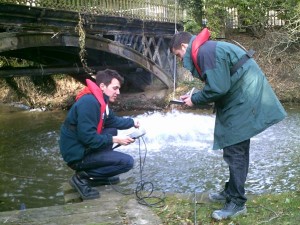
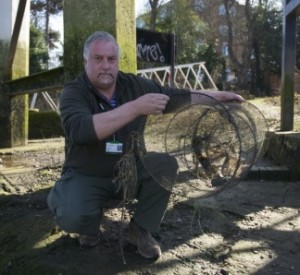

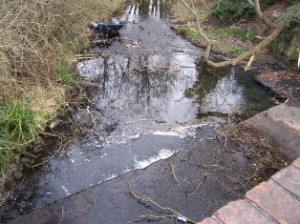
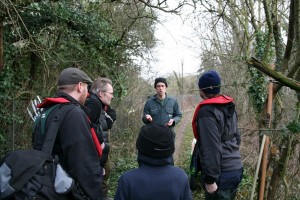
 Like many urban watercourses, at times they are used as a dumping ground for all manner of rubbish.
Like many urban watercourses, at times they are used as a dumping ground for all manner of rubbish.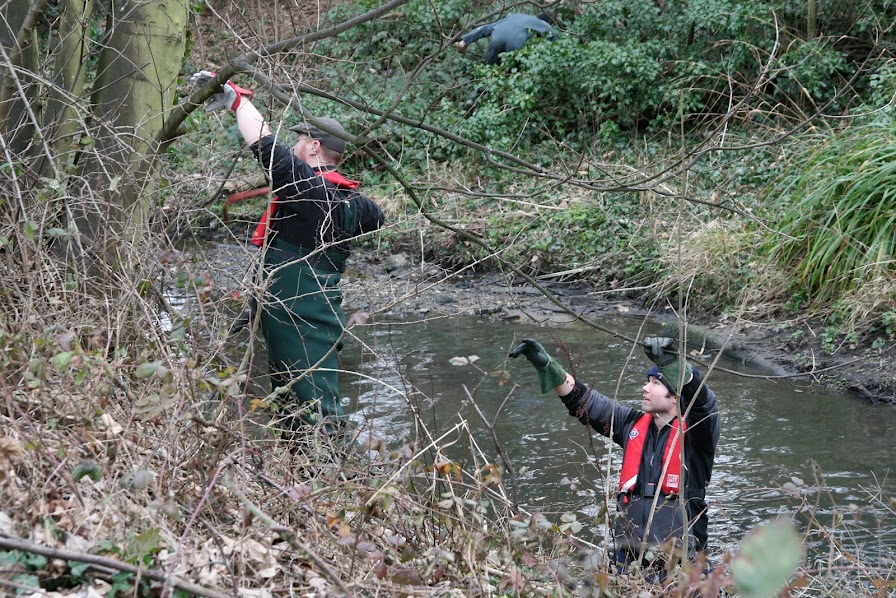
 Clearing in-river debris
Clearing in-river debris TAC members at work
TAC members at work